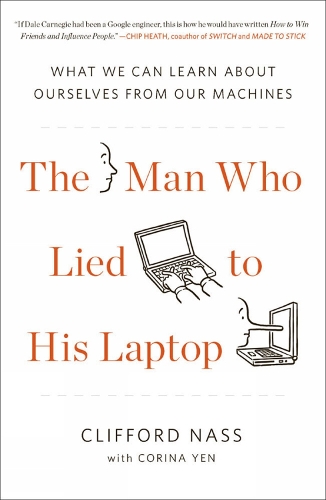
The Man Who Lied To His Laptop: What We Can Learn About Ourselves from Our Machines
(Paperback)
Publishing Details
The Man Who Lied To His Laptop: What We Can Learn About Ourselves from Our Machines
By (Author) Clifford Nass
By (author) Corina Yen
Penguin Putnam Inc
Current
24th April 2013
United States
Classifications
General
Non Fiction
Social and ethical issues
Humancomputer interaction
004.019
Physical Properties
Paperback
238
Width 138mm, Height 214mm
244g
Description
Stanford Professor, Clifford Nass has spent over two decades studying problems like Microsoft's Clippy (the most hated animated character of all time) and BMW drivers' complaints about the woman's voice navigating their GPS system. Nass proposes the theory that our brains cannot fundamentally distinguish between interacting with people and interacting with devices. Using real experiments, this discussion of human interaction and its relation to technology provides an insight into an increasingly important part of life.
Reviews
"If Dale Carnegie had been a Google engineer, this is how he would have written "How to Win Friends and Influence People." Cliff Nass shows us how much we can learn about people by understanding how people interact with computers."
-Chip Heath, coauthor of "Switch" and "Made to Stick"
"With the help of real experiments, rather than anecdotes or impressions, Clifford Nass uses people's interactions with computers as a window into social and professional life. The book is filled with insights about an increasingly important part of our lives."
-Steven Pinker, Harvard College Professor of Psychology, Harvard University, and author of "How the Mind Works" and "The Stuff of Thought"
"With engaging illustrations and compelling evidence, Clifford Nass shows how interactions with our most advanced machines reveal our most primitive workings."
-Robert B. Cialdini, author of "Influence: Science and Practice"
"Nass and Yen serve up a wealth of practical, h
Author Bio
Clifford Nass is the Thomas M. Storke Professor at Stanford University and director of the Communication between Humans and Interactive Media (CHIMe) Lab. He is a popular designer, consultant, and keynote speaker, and is widely quoted by the media on issues such as the impact of multitasking on young minds. He lives in Silicon Valley.
